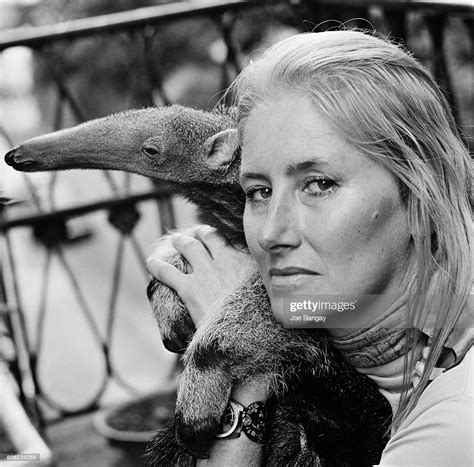A Quote by Willa Cather
It has long been a tradition among novel writers that a book must end by everybody getting just what they wanted, or if the conventional happy ending was impossible, then it must be a tragedy in which one or both should die. In real life very few of us get what we want, our tragedies don't kill us, but we go on living them year after year, carrying them with us like a scar on an old wound.
Related Quotes
If the book we are reading does not wake us, as with a fist hammering on our skull, why then do we read? So that it shall make us happy? Good God, we should also be happy if we had no books, and such books as make us happy we could, if need be, write ourselves. But what we must have are those books which come upon us like ill fortune, and distress us deeply, like the death of one we love better than ourselves; like suicide. A book must be an ice-axe to break the sea frozen inside us.
It is our genetic nature as a species to believe as young children that our parents and elders are right. We watch them to see what's what. Later on we can judge for ourselves and rebel if need be, but when we're just months old, or a year or two, and a parent looks at us with impatience, or disgust, or disdain, or just leaves us there to cry and doesn't answer us even though we're longing to be embraced and nurtured, we assume that something must be wrong with us. Unfortunately, at that age it's impossible to think there might be something wrong with them.
[S]omething inside us, the feeling of resentment, the feeling that wants to get one's own back, must be simply killed. I do not mean that anyone can decide this moment that he will never feel it anymore. That is not how things happen. I mean that every time it bobs its head up, day after day, year after year, all our lives long, we must hit it on the head. It is hard work, but the attempt is not impossible.
The world is hard and cruel. We are here none knows why, and we go none knows whither. We must be very humble. We must see the beauty of quietness. We must go through life so inconspicuously that Fate does not notice us. And let us seek the love of simple, ignorant people. Their ignorance is better than all our knowledge. Let us be silent, content in our little corner, meek and gentle like them. That is the wisdom of life.
We buy things. We wear them or put them on our walls, or sit on them, but anyone who wants to can take them away from us. Or break them.
...
Long after he's dead, someone else will own those stupid little boxes, and then someone after him, just as someone owned them before he did. But no one ever thinks of that: objects survive us and go on living. It's stupid to believe we own them. And it's sinful for them to be so important.
It was so much easier to blame it on Them. It was bleakly depressing to think that They were Us. If it was Them, then nothing was anyone's fault. If it was us, what did that make Me? After all, I'm one of Us. I must be. I've certainly never thought of myself as one of Them. No one ever thinks of themselves as one of Them. We're always one of Us. It's Them that do the bad things.
No one's place in this world is guaranteed. Not everyone is going to get a happy ending. But life isn't about how it ends. It's about the moments between. It's about the small things. The way our loved ones laugh. The sight of a butterfly in the sunlight after a year or two in the darkness. The love and support of an old friend. They might not be with us in body, but they are with us in spirit. ... Because every day, on this planet, people are born and people die and stranger things happen.(Armintrout, All Souls' Night, 367)
A realistic expectation also demands our acceptance that one's allotted time on earth must be limited to an allowance consistent with the continuity of our species... We die so that the world may continue to live. We have been given the miracle of life because trillions and trillions of living things have prepared the way for us and then have died-in a sense, for us. We die, in turn, so that others may live. The tragedy of a single individual becomes, in the balance of natural things, the triumph of ongoing life.
This little separate self must die. Then we shall find that we are in the Real, and that Real is God, and He is our own true nature, and He is always in us and with us. Let us live in Him and stand in Him. It is the only joyful state of existence. Life on the plane of the Spirit is the only life, and let us all try to attain to this realization.
We must die alone. To the very verge of the stream our friends may accompany us; they may bend over us, they may cling to us there; but that one long wave from the sea of eternity washes up to the lips, sweeps us from the shore, and we go forth alone! In that untried and utter solitude, then, what can there be for us but the pulsation of that assurance, "I am not alone, because the Father is with me!
It's true. somewhere inside us we are all the ages we have ever been. We're the 3 year old who got bit by the dog. We're the 6 year old our mother lost track of at the mall. We're the 10 year old who get tickled till we wet our pants. We're the 13 year old shy kid with zits. We're the 16 year old no one asked to the prom, and so on. We walk around in the bodies of adults until someone presses the right button and summons up one of those kids.
The Louvre is the book in which we learn to read. We must not, however, be satisfied with retaining the beautiful formulas of our illustrious predecessors. Let us go forth to study beautiful nature, let us try to free our mids from them, let us strive to express ourselves according to our personal temperaments. Time and reflection, moreover, little by little modify our vision, and at last comprehension comes to us.


































